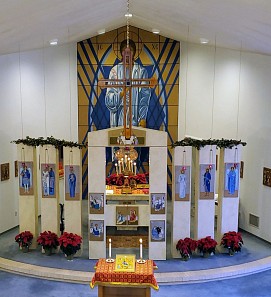Welcome!
Welcome to our church website! We are a diverse community, with many backgrounds and ethnicities, and our services are in English. All are welcome, Orthodox and non-Orthodox alike. We invite visitors to join us for services.
Divine services are also live streamed on our Facebook page "Sts Cyril and Methody Orthodox Church".


